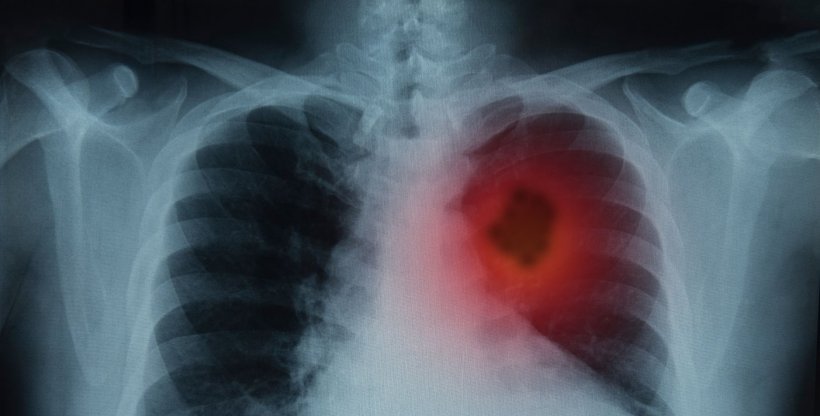
Image source: Shutterstock/create jobs 51
News • Malignant Pleural Mesothelioma
AI to help fight asbestos-related cancer
International genomics research led by the University of Leicester has used artificial intelligence (AI) to study an aggressive form of cancer, which could improve patient outcomes.
Mesothelioma is caused by breathing asbestos particles and most commonly occurs in the linings of the lungs or abdomen. Currently, only seven per cent of people survive five years after diagnosis, with a prognosis averaging 12 to 18 months. New research undertaken by the Leicester Mesothelioma Research Programme has now revealed, using AI analysis of DNA-sequenced mesotheliomas, that they evolve along similar or repeated paths between individuals. These paths predict the aggressiveness and possible therapy of this otherwise incurable cancer. The researchers published their findings in the journal Nature Communications.
Mesotheliomas follow ordered paths of mutations during development, and [...] these so-called trajectories predict not only how long a patient may survive, but also how to better treat the cancer
Dean Fennell
Professor Dean Fennell, Chair of Thoracic Medical Oncology at the University of Leicester and Director of the Leicester Mesothelioma Research Programme, said: “It has long been appreciated that asbestos causes mesothelioma, however how this occurs remains a mystery. Using AI to interrogate genomic ‘big data’, this initial work shows us that mesotheliomas follow ordered paths of mutations during development, and that these so-called trajectories predict not only how long a patient may survive, but also how to better treat the cancer – something Leicester aims to lead on internationally through clinical trial initiatives.”
While use of asbestos is now outlawed – and stringent regulations in place on its removal – each year around 25 people are diagnosed with mesothelioma in Leicestershire and 190 are diagnosed in the East Midlands. Cases of mesothelioma in the UK have increased by 61% since the early 1990s. Until very recently, chemotherapy was the only licenced choice for patients with mesothelioma. However, treatment options start to become limited once people stop responding to their treatment.
Source: University of Leicester
29.03.2021










